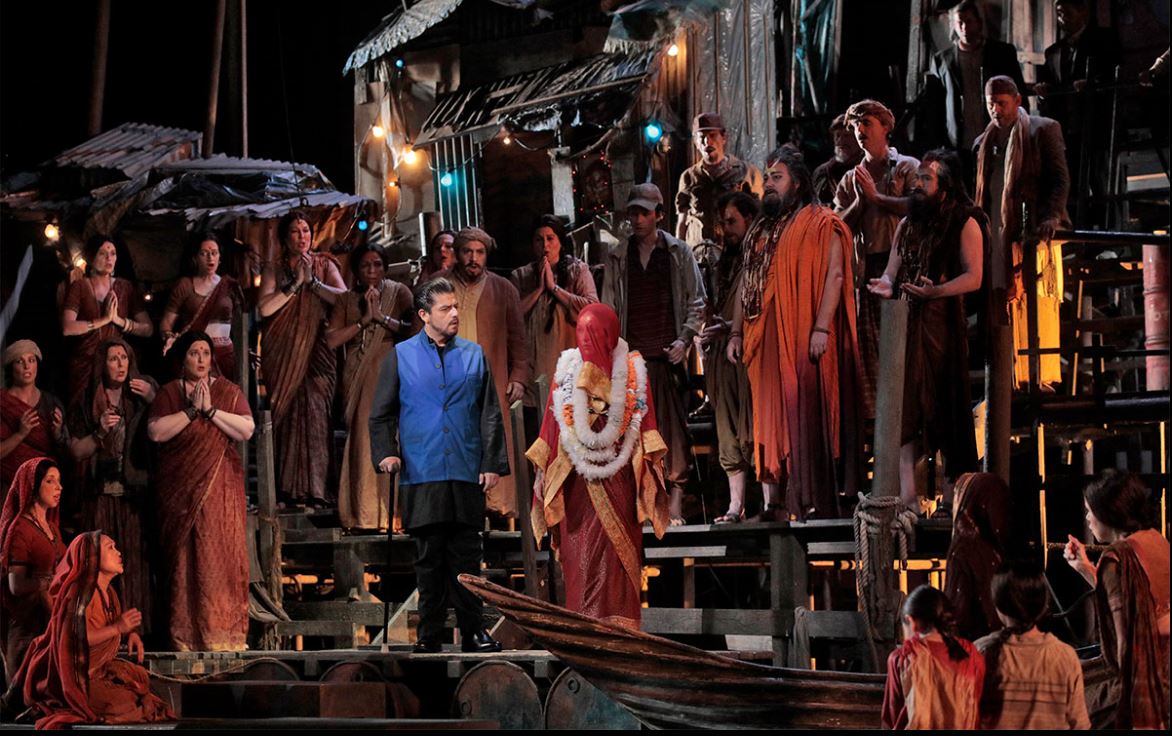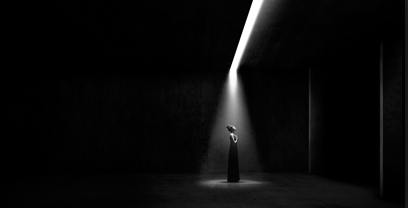The Pearl Fishers at LA Opera
Image taken from the Los Angeles Opera website
The Dorothy Chandler Pavilion, which was opened in 1964, seating 3,200 people, is a beautiful opera house. There is lots of wood and no carpet and the sound is excellent and everything is tall and big, quite typical of such concert halls in America. However, the seat rows are at times more than 60 seats long with no middle section. That’s a long walk along the row if you start at the wrong end! I particularly reflected on the initial announcement made in the auditorium asking the audience to ‘refrain from talking during the opera’!
However, the audience itself was very receptive and knowledgeable, having particular regard to the beautiful ENO production by Penny Woolcock, which looked wonderful on the night. In fact in the opening scene, which sees villagers diving for pearls in what appears to be a big tank, the audience applause was fulsome.
There was an outstanding pre-performance talk by Duff Murphy, which attracted over 500 people and there was suitable recognition for ENO’s Martin Fitzpatrick additional orchestration to the vocal.
The opera was written by Bizet at the age of 25 and The Pearl Fishers duet sung by the tenor and baritone is one of the most glorious and well known arias in opera. The story is a painful love triangle, a tale of lust and rejection, loss and longing, religious strictures, forbidden sex and lonely nights. The story takes place against a Polynesian backdrop of extreme poverty and flimsy shacks and Penny Woolcock’s production beautifully represents this scene.
However, musically the performance is on a very varied keel. The Conductor was Placido Domingo. He is a veritable force of nature conducting a Sunday matinee having sung the title role in Nabucco the previous night. Perhaps he was somewhat tired, but the performance was lacklustre, unexciting and poorly paced. This does not bode well for Beyreut next summer where Domingo conducts three performances for Die Walkure. This lack of oomph was replicated by the chorus, who started unevenly with a lack of proper timing to the music and even at the height of Bizet’s choral might, sounded weak and underpowered.
It was lucky that overall the principles were in fair voice. The two friends - the baritone Zurga and the tenor Nadir - were sung by the Mexican pair, Alfredo Daza and Javier Camarena. Daza’s voice is not large, but he has a beautiful tone. Camarena sang powerfully with a slight crack in his voice in his Act 3 aria sung in falsetto. Their love, Leila, was sung by the Georgian soprano, Nino Machaidze. She has quite a heavy voice with a lack of light and dark and somewhat pinched at the top. More dependable was the high priest Nourabad sung by Nicholas Brownlee, although even he was slightly tight at the top of his bass baritone voice.
Overall, not as good a performance as one might have wished for.






